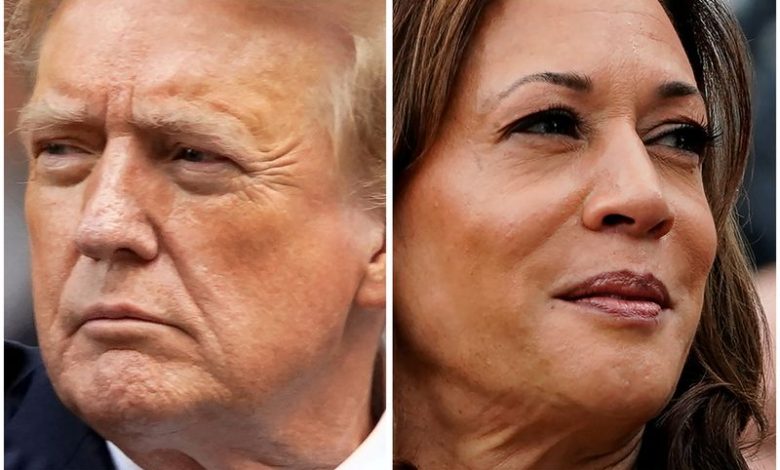
Heated Trump-Harris Debate Offers Little Policy Insight for Wall Street
Former President Donald Trump and current Vice President Kamala Harris engaged in a heated debate on Tuesday, addressing a wide array of issues from immigration to the economy. As both candidates remain close in national polls, viewers were left wanting more information about their approaches to critical topics such as tariffs, taxes, and regulations.
Trump has promised significant reductions in corporate taxes and a more aggressive stance on tariffs, while Harris has committed to increasing corporate tax rates. Analysts suggest that while Trump’s tax cuts could enhance corporate profitability, they might also contribute to inflation. Conversely, Harris’s proposal could adversely affect corporate earnings.
During the debate, Harris criticized Trump’s high tariffs on foreign goods, asserting that such policies would ultimately burden the middle class. Trump countered, insisting that his approach would not raise prices for American consumers and highlighted the inflation levels during Harris’s time in the Biden administration.
In the aftermath of the debate, betting markets indicated a slight edge for Harris, with her chances of winning increasing to 56%, up from 53% before the debate, while Trump’s dropped to 48% from 52%.
Reactions from analysts varied, with some key insights summarized below:
TD Cowen: "This was not a debate about the economy. We did not see substantial discussions on key economic issues such as the White House’s role in setting interest rates or the influence of tariffs on inflation and growth."
BTIG: Analysts concluded that Harris "won the night" and may have broadened her appeal to undecided voters, although the debate likely did little to change the views of staunch partisans.
Wolfe Research: Analysts anticipated that both candidates would delve into their agendas, but noted they primarily reiterated existing proposals. Trump notably maintained his stance on tariffs, not shying away from endorsing a 20% global tariff early in the debate.
Raymond James: Polls show that undecided voters desire more information about Harris and her policies. While she is likely to be labeled the debate winner, the lack of specific policy proposals may hinder her ability to win these voters, leading to expectations of a close election.
Citi: The debate lacked detailed policy discussions, particularly regarding tariffs, which Trump continues to feature prominently. Interestingly, despite Harris’s mention of potentially expansive fiscal policies, bond yields fell as the debate unfolded and the likelihood of Harris’s victory increased. This suggests investors believe that even if she were to win, a lack of a Democratic Senate would hinder the implementation of her policies.
 GOOGL
GOOGL  META
META 


